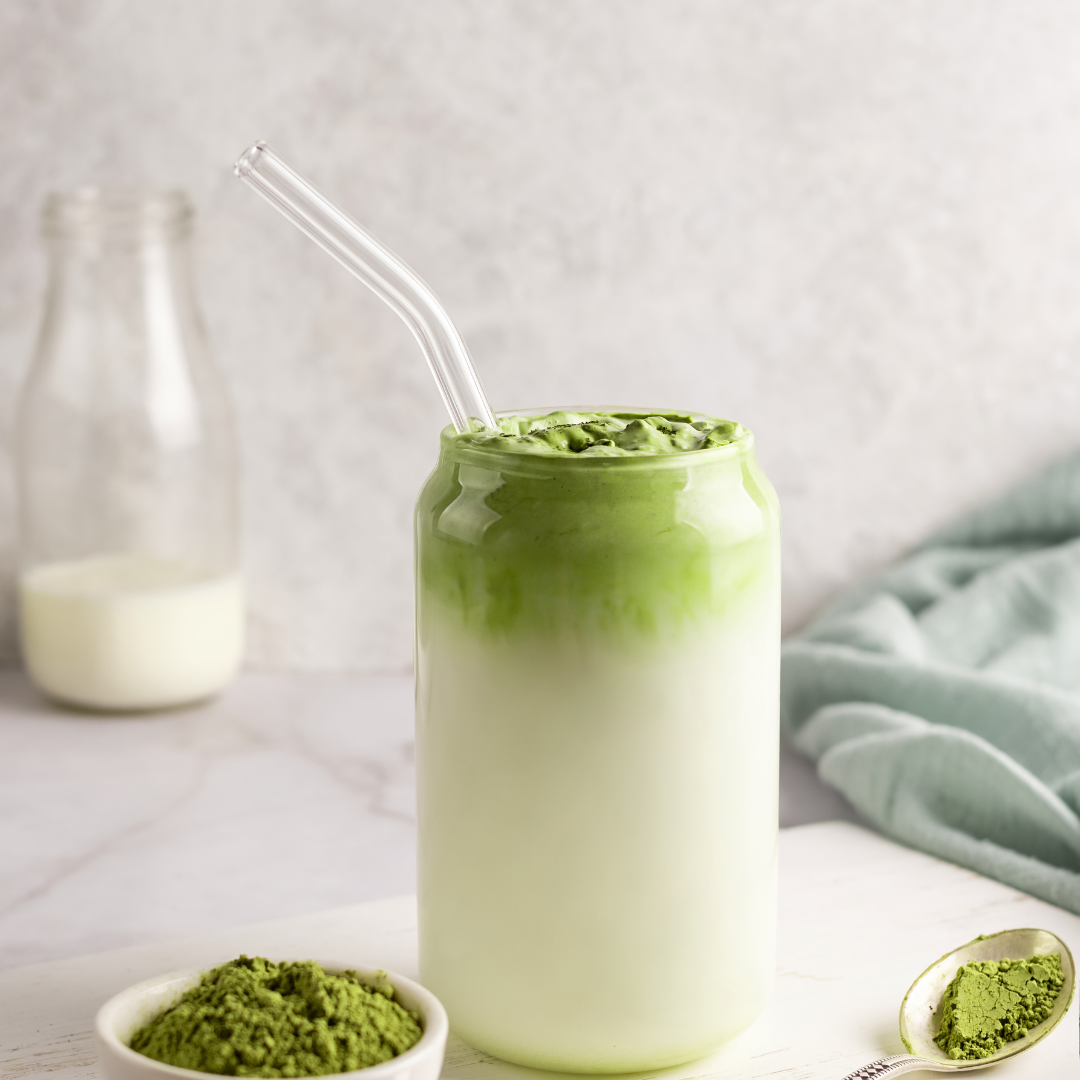Your cart is currently empty!

Matcha is an extremely popular form of green tea. It can be consumed in different ways, from snacks such as biscuits, cookies, and chocolates to beverages like a latte, tea, and even shots.
So, why exactly is it so popular? And is matcha really better than the traditional green tea?
What is Matcha?
Matcha is a high-grade form of powdered green tea extracted from young tea leaves of the plant Camellia sinensis. These leaves go through unique processing to retain as many of their nutrients as possible. The process starts with steaming and drying the tea leaves. The farmers then remove the stems and veins. The leaves are ground into a fine green powder, which can now be used to prepare Matcha tea by whisking it in hot water.
What makes Matcha different from green tea is that the leaves are never discarded. In making green tea, the manufacturers usually get rid of the leaves once they are done infusing them with water. The tea is still very beneficial, but lots of nutrients get lost with the leaves. Matcha producers retain the leaves, and that’s why it is more nutritious and beneficial.
Besides the processing, the tea plants that produce Matcha are also grown and harvested differently to maximize their nutrient profile. For instance, farmers cover the plants 20 days before harvest to safeguard them from direct sunlight. As a result, chlorophyll production increases significantly, giving the plant its dark green color. Studies show that this increases amino acids such as L-theanine, making the tea leaves even more beneficial.
You should know that Matcha is sold in various grades. Ceremonial grade is the highest quality matcha. It is generally used for tea ceremonies, but you can also buy it from some stores at a hefty price.
Premium grade matcha is the more common option for daily use. It is a bit cheaper than ceremonial grade matcha, but it has an excellent nutrient profile.
If you want something even cheaper, then check out the culinary or cooking grade Matcha. This is the matcha used for making smoothies, deserts, and flavorings.

Origin of Matcha
Matcha became popular in the western world only recently, but its origin dates way back to the Chinese Tang Dynasty of the 7th to 10th centuries. Back then, tea leaves were usually steamed to form bricks, which were easier to store and transport. Between the 10th and 13th centuries, a Japanese by the name of Eisai came to study Buddhism in China. He embraced the culture of preparing powdered green tea and carried the practice with him back to Japan. The methods became popular in Kyoto, and the Zen Buddhist enhanced it further by growing the green tea plants under shades.
6 Benefits of Matcha
-
Boosts Antioxidant Protection
Matcha contains antioxidants called catechins, which fight free radicals known for causing oxidative stress and damage to cells and tissues. This helps in preventing various chronic diseases.
Take note that matcha contains more antioxidants than typical green tea. In this report, researchers reported that matcha contains 137 times more EGCG or epigallocatechin gallate (a form of catechin) than the normal china green tea.
Therefore, adding some matcha to your daily diet is critical in boosting antioxidant activities in your body.
-
Improves Brain Functions
Matcha tea can improve cognitive functions such as memory, attention, concentration, and reaction time. This has been proven in multiple animal and human trials. For instance, this randomized placebo-controlled study took 23 subjects through four cognitive test sessions. Some of the subjects were given matcha tea or bar, while the others were given a placebo tea or bar. At the end of the study, the researchers noted an improvement in episodic secondary memory and speed of attention among the subjects who were taking either matcha tea or matcha bar.
Additional trials also show that regular consumption of matcha may boost brain functions among the elderly. This is critical because memory loss, attention deficit, and other cognitive issues are especially rampant among old people.
The cognitive-enhancing abilities of matcha can be attributed to the presence of key nutrients like L-theanine and caffeine. Note that matcha contains more caffeine than green tea but less than coffee, so it boosts your attention and concentration without being overwhelming.
-
Protects the Liver
Trials show that matcha can improve liver and kidney functions by reducing total cholesterol, triglycerides, and hepatic glucose.
It may also reduce diabetes risk factors such as systolic blood pressure and body weight.
-
Reduces the Risk for Cardiovascular Diseases
Matcha is very beneficial to your heart. The tea leaves reduce bad LDL cholesterol and overall cholesterol numbers linked to heart disease, stroke, and heart attack. The catechins present in the leaves are also effective for lowering blood pressure.
While matcha may significantly boost your heart health, it’s crucial that you also support it with a proper diet and an active lifestyle.
-
It May Prevent Cancer
The research on matcha and cancer is fairly limited. However, from the few trials available at the moment, matcha has shown impressive anti-tumor properties attributed to the EGCg present in the tea leaves. This is not surprising at all since the National Cancer Institute also reported that EGCg might prevent tumor cell proliferation as well as cell damage that causes cancer.
The EGCg in matcha killed prostate, lung, skin, and liver cancer in multiple test-tube studies. Hopefully, we will see more clinical trials on this subject in the near future. The results should be very interesting.
-
It Supports Weight Loss
Green tea is a very popular ingredient in weight loss supplements. Some supplements even center their entire formula on green tea. That’s because the tea boosts metabolism hence increasing the breakdown of calories and boosting the overall efficiency of the digestive system. This improves fat breakdown, and it also increases energy levels.
Both green tea and matcha come from the same Camellia sinensis plant, which means even matcha should be able to support your weight loss efforts. And of course, you’ll need to make drastic changes to your diet and overall lifestyle for the very best results.
Other potential benefits of matcha are:
- It may boost your dental health.
- It may fight autoimmune uveitis.
- It may reduce inflammation.
How Does Matcha Tea Taste?
High-quality matcha tea should have a smooth, slightly sweet taste. Not grassy or bitter.
It’s critical that you buy your matcha from the right vendor because quality will ultimately affect the taste and overall experience with the tea.
Check out our Vegan Vanilla Protein with added matcha here.
